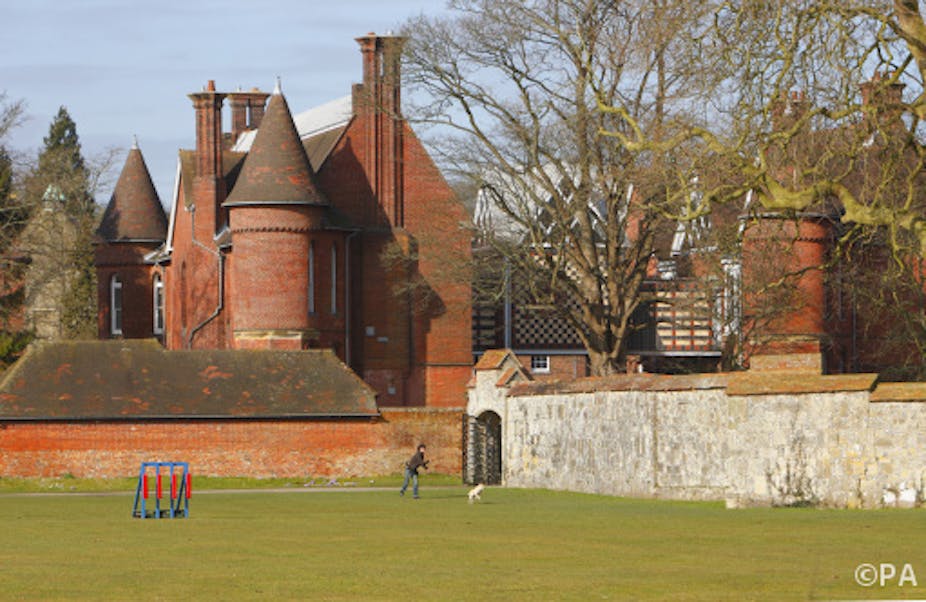Britain’s private schools are in rude health. According to the 2016 census from the Independent Schools Council, 518,432 children attend independent schools, the highest since records began. Fee increases are the lowest since 1994 and the proportion of international students has remained stable.
There is also evidence that private schools have become more accessible: a third of pupils received fee assistance worth £850m overall and 30% of pupils are from ethnic minority backgrounds. A significant number of private schools – 1,122 – also operate in partnership with state schools.
While this is a good news story for private education, the data has to be set against a backdrop of increased inequality and reduced social mobility. This is a problem because politicians constantly remind us that the primary purpose of education is to help create a fair society where everyone has equal opportunities. As schools minister Nick Gibb recently put it: “Schools can – and must – be engines of social mobility.”
Ruling public life
The good news from the census is limited to the 7% of pupils whose parents can afford to send them to private school. This is particularly apparent in light of the domination of public life by those from private schools. In 2014, the Social Mobility and Child Poverty Commission reported that Britain’s elite were “formed on the playing fields of independent schools”. This has led to a growing sense of alienation between a ruling elite and everyone else. The same report found that 65% of people believe “who you know” is more important than “what you know”, and 75% of people think family background has a significant influence on life chances in Britain today.
Education cannot be separated from this process because the existing social order is reflected across the education system. Parents with money have more choices for their children. Good state schools are colonised by “sharp elbowed” middle classes, while those who can use their purchasing power to opt out of the state sector completely. Children whose parents have neither the social or material means are often left behind.
Some have argued that this is social justice in action. To quote the outgoing mayor of London, Boris Johnson: “The harder you shake the cornflake packet the easier it will be for some cornflakes to get to the top”. The implication is that those who come from wealthy backgrounds tend to be more capable so will do better at school.
Yet, as Leon Feinstein, director of evidence at the Early Intervention Foundation demonstrates, education is heavily determined by social background and class is a significantly better predictor of how well a child will do at school than cognitive ability.

Where pupils from poorer backgrounds do start well, they tend to fall away in comparison to their wealthier counterparts. “Rich thick kids” as former education secretary Michael Gove opined, “do better than poor clever children”.
Partnerships on an equal footing
Talking to a headteacher of a state primary school recently, I was struck by the frustration she felt. She had participated in a number of collaborative events with private schools in the hope of raising the aspirations of her pupils. Yet she felt that the children’s ambitions were not improved, nor were the private school pupils’ attitudes challenged. Interaction, it would appear, is not enough.
Feminist philosopher Alison Jagger argues that this is inevitable where power relationships are unequal, where equality is assumed as the outcome of such interactions, not the starting point. As with bursaries, partnerships with state schools are often viewed as charity by private schools: state schools are recipients of their benevolence. The relationship between the two participants starts from a position of inequality.
Todd May, the American political philosopher, argues that to challenge social order those who are perceived to be in the weaker position should take rather than wait to be given. They must assume equality from the outset and make demands accordingly. From this point of view, those from poorer backgrounds are within their rights to make demands on those who reduce their opportunities.
In the case of the frustrated headteacher, the aspirations of her pupils can only be realised through a relationship that begins with equality, where she is able to take the lead, rather than waiting to be given. This will often lead to withdrawal of support from the advantaged but, as May points out, at least the inequity of the situation is made apparent.
The same can be said for the private education sector writ large. Those of us who are not able to benefit from the existing system should make more demands on such institutions: demand they are not exempt from taxation, demand more support for those who cannot pay, demand more access to their facilities, demand they pay a premium when employing teachers trained at the state’s – taxpayers – expense.
Perhaps, as Elvis Costello once said, we should all “want to bite the hand that feeds us” a little more.

